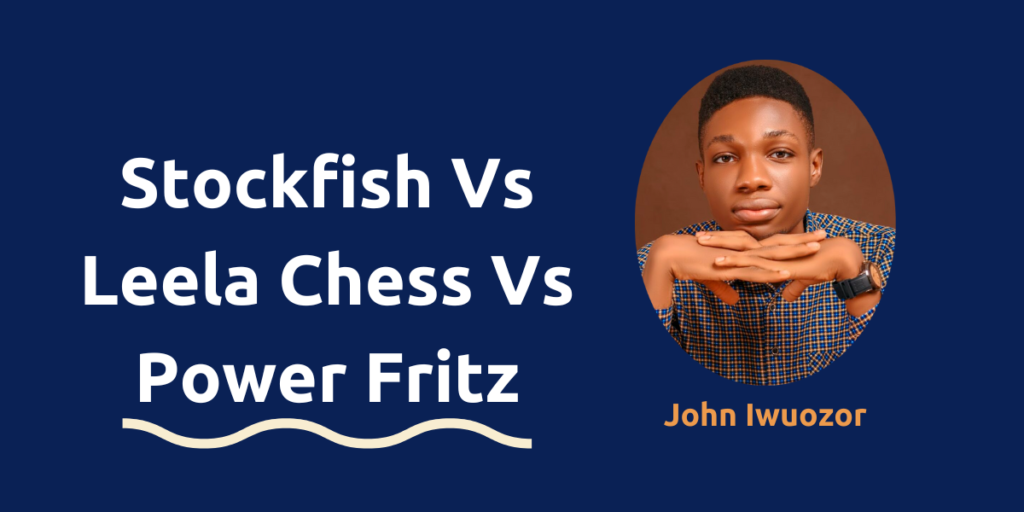Just in case you’re wondering “What chess engine should I use to improve my chess?”
The answer is, “It depends,” as there isn’t a universal answer to this question.
While many may find this response unsatisfying or even ignorant, it is, as this post will illustrate, a truth born from a nuanced understanding of the subject.
In this article, we’ll compare three engines, Stockfish, Leela Chess, and Power Fritz, each with its unique strengths and shortcomings.
Stockfish: The Tactical Monster
The spotlight first falls on Stockfish, an engine that has dominated the ratings lists for years.
The top choice for many, Stockfish is a formidable engine known for its strategy and speed.
And the cherry on top? Stockfish is free because of its open-source nature.
Leela Chess: The Neural Network Powerhouse
The next noteworthy engine, Leela Chess, first saw the light of day in 2018 as an adaptation from AlphaGo Zero.
Thanks to the groundbreaking papers published by DeepMind, all the secrets to creating a similar neural network-based chess engine were shared.
Leela learned chess by playing itself tens of millions of times, thereby analyzing billions of positions and gaining an unparalleled understanding of the game.
Despite its slower processing speed compared to Stockfish, Leela’s profound positional comprehension makes it a worthy competitor.
Practical Heads Up: Stockfish vs. Leela
While talk is cheap, illustrations aren’t. Let’s take a simple example.
In the position above, Leela (White) exhibited better understanding by playing a spectacular bishop sacrifice on move 8! – something that Stockfish failed to consider.
The game ended up with Leela crushing Stockfish positionally by keeping the position closed for Black all through the game.
Here’s where Leela’s neural network’s deep knowledge shines out.
However, it’s fair to say that there are moves that Stockfish can identify, which Leela cannot.
Hence, one isn’t eligible to replace the other.
Enter Power Fritz: Your Chess Play Partner
So, how does Power Fritz fit in?
Despite lacking the brutish strength of Stockfish and Leela’s deep understanding of chess, Power Fritz shines by being the best computer chess-playing partner.
Back in the day, the golden dream was to develop a strong yet worthy computerized opponent.
Power Fritz leverages special technology by Chessbase that adjusts its playing strength to maintain an interesting and competitive game.
While it’s true that any modern chess engine could easily knock out even a grandmaster like Magnus Carlsen, Power Fritz distinguishes itself by not showing you everything it’s got.
Instead, it mimics a fellow player of your strength, thereby providing an engaging and enjoyable play experience.
Strength vs. Usefulness
One crucial takeaway from our brief analysis is that while a higher ELO rating, such as that of Stockfish or Leela, is an indicator of an engine’s strength, it’s not so much a determinant of the engine’s usefulness.
Indeed, lower-rated engines like Power Fritz can often provide a more rewarding chess experience.
In conclusion, while these named engines—Stockfish, Leela, and Power Fritz—might dominate the conversation, there are many other unsung heroes in the world of chess engines.
Shrouded under the gargantuan glory of the popular engines, these lesser-known engines, as rated by the Computer Chess Rating Lists still offer interesting prospects and definitely deserve a chance.
Let me know if this review was helpful.
